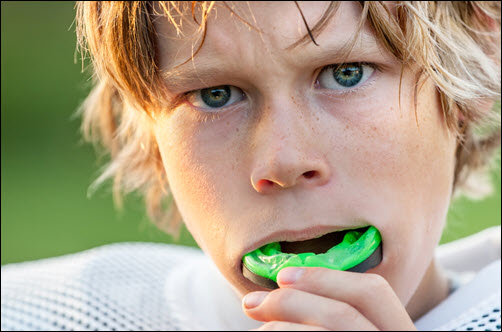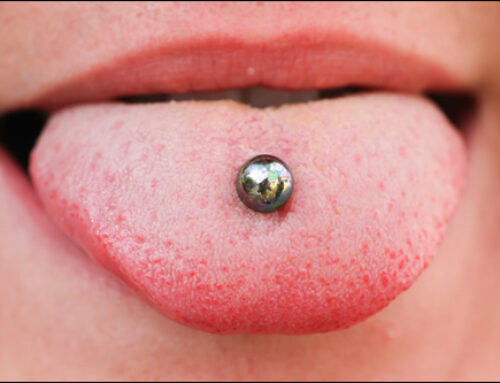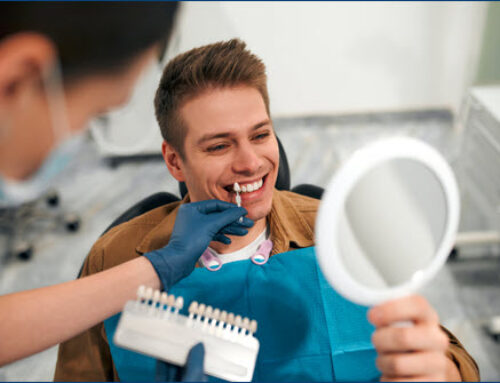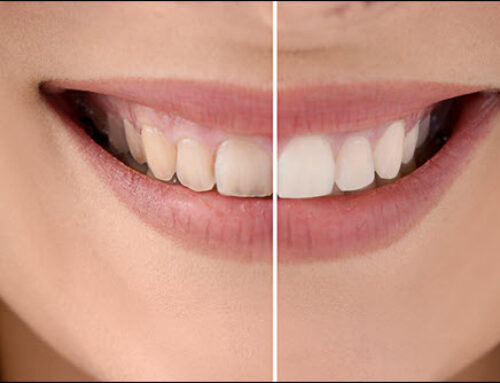No matter what sport you or your children play, there is likely equipment involved. From shoulder pads to knee pads, helmets, and shin guards we wear items to protect us in the event of contact – be it with another person or the ground. But despite the many proactive measures, every year approximately 15 million Americans experience some type of sports-related dental injury. Often, this is because a crucial part of equipment was forgotten or not a part of the plan. Of course, there are other dental-related injuries as a result of backyard and pick-up games, where mouthguards may not have been on hand.
However, you can avoid many dental issues by choosing to wear a mouth or sports guard. After all, you don’t want your season to end because you failed to use a guard!
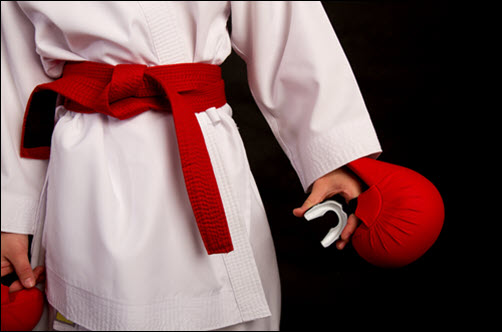 What You Need to Know about a Mouthguard
What You Need to Know about a Mouthguard
1. You may only need a mouthguard for your top teeth unless you have braces. With braces, you may need a custom one. There are also some sports, such as boxing, where wearing upper and lower guards is beneficial.
2. Clean your mouthguard before and after each use. Your mouthguard will collect bacteria due to thriving in the mouth’s moist environment. The bacteria can cause you to get sick, as well as cause damage to your teeth. Keep your sports guard clean by gently brushing it with a toothbrush. Then store it in a ventilated case. If you don’t have a case designed for your guard, talk to your Progressive Dental Concepts tech about getting one.
3. A mouthguard needs to be replaced when it starts showing signs of wear and tear. Typically, this will be every 6 months- especially if it is an OTC guard. If your guard is thinning out, getting grooves or tears in it, then it will not be as effective.
4. Don’t opt for stock mouthguards as they don’t offer the same amount of protection. Get a custom guard made as it will fit better, be made from high-quality materials, and last longer. Of course, if finances don’t allow for a custom mouthguard, an OTC one is better than nothing and will offer protection against serious damage.
5. A mouthguard is cheaper than paying for emergency dental treatment. It is also better than dealing with the pain and repercussions of TMD/TMJ.
6. A mouth guard protects the soft tissues- gums, cheeks, and tongue- against serious injury.
7. If you have had restorative work such as crowns, braces, bridges, or veneers you want to protect them. A mouthguard will do this, and ensure your smile remains as it should.
Types of Mouthguards
• Stock mouth guards – A one-size-fits-all approach. They are the cheapest but will not offer the protection you truly need.
• Boil-and-bite guard – Referred to as such because you put them in boiling water to get them soft, then bite into them thus forming them to your teeth/mouth. These are a good middle-ground approach. And can often be adjusted, some, by your dentist.
• Custom-fit guards – Made by your dentist to offer optimum protection against injuries.
Do your part to keep your smile looking great. To be sure you have a mouthguard that is perfect for your teeth and the sports you play, talk to the team at Advanced Dental Partners, a Progressive Dental Concepts practice. We are here to help you.


